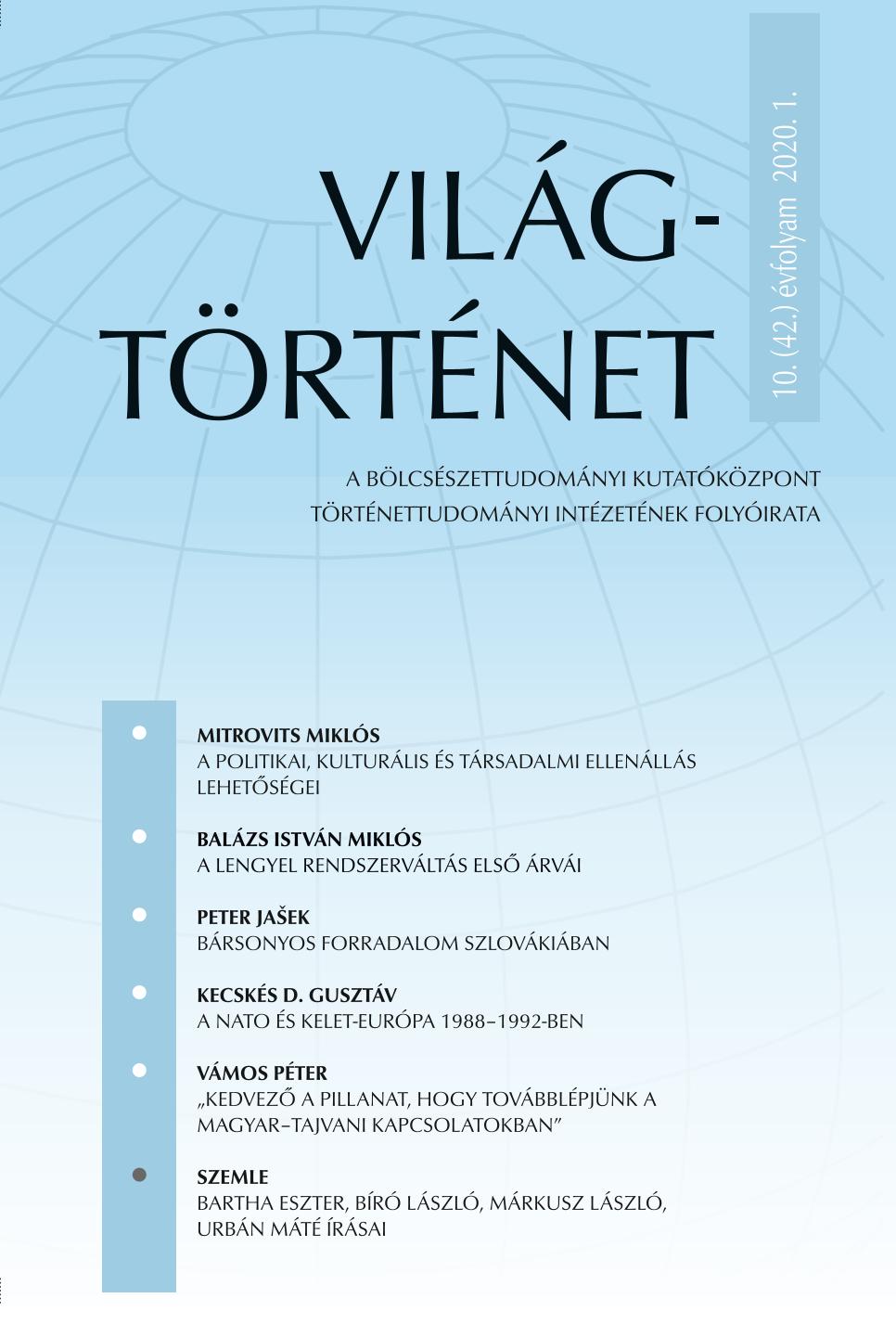A lengyel rendszerváltás első árvái. A Rendszerellenes Ellenzék Kongresszusának története
The First Orphans of the Polish Transition: The Congress of the Anti-system Opposition
Author(s): István Miklós BalázsSubject(s): Post-War period (1950 - 1989)
Published by: Magyar Tudományos Akadémia Bölcsészettudományi Kutatóközpont Történettudományi Intézet
Summary/Abstract: In some communist states of East-Central Europe the main decisions relating the transition to capitalism and pluralist democracy were made in the course of the negotiations (commonly known as Round Table Talks) between the representatives of the regime and the constructive opposition. Critics of such discussions with the state parties arised in every of these countries (Hungary, Czechoslovakia, Bulgaria), but Poland was the only one, where the often called “radical” organizations could create–at least for a short time–a common platform, the Congress of the Anti-system Opposition. The participants, including the Fighting Solidarity or the Confederation of Independent Poland, either were excluded from the political safe space guaranteed by the communist authorities to Lech Wałęsa’s Solidarity Citizens’ Committee, or never even wanted to be engaged in dialogue with the politicians responsible for the Martial Law (or, more broadly speaking, for the events of 1956, 1970, etc.). During the two meetings of the anti-system congress (on the 25th of February and on the 21st of May 1989), in parallel with constant mass protests against the round table talks, the organizations declared that the only way to reach democracy is breaking the monopoly situation of the Polish United Workers’ Party and holding free, democratic constituent elections. However, participants were unable to form a closer unity on account of ideological differences, the lack of elaborating an economic alternative and the enormous success of the Solidarity Citizens’ Committee at the legislative elections of 1989. Therefore, in the newly-born state all the concerned organizations became marginalised at some extent.
Journal: Világtörténet
- Issue Year: 2020
- Issue No: 1
- Page Range: 25-38
- Page Count: 14
- Language: Hungarian

